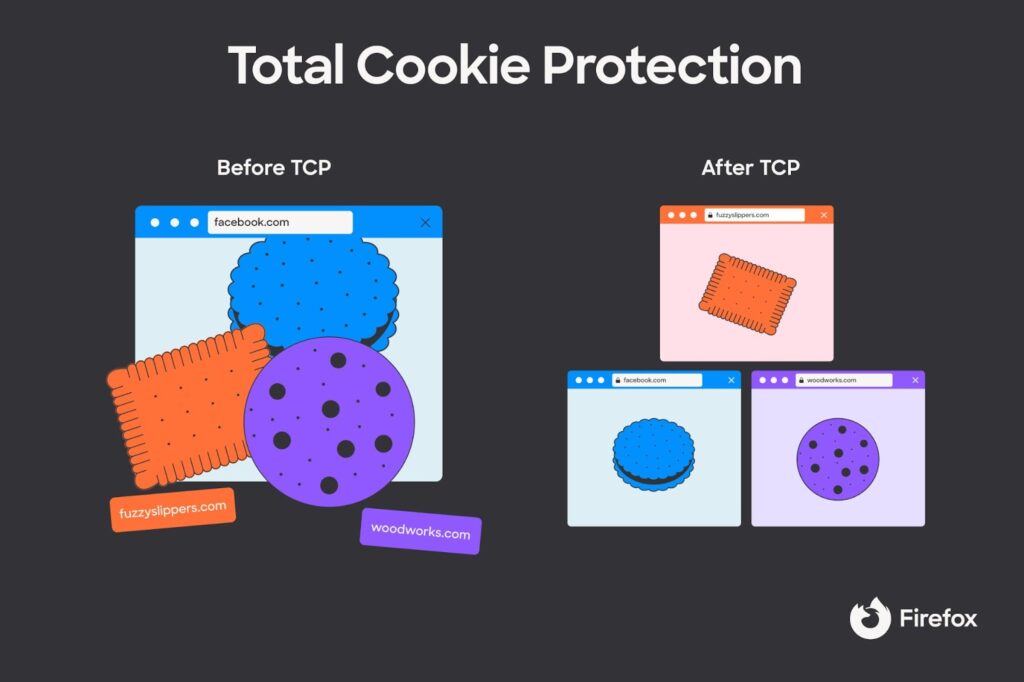- cross-posted to:
- [email protected]
- [email protected]
- cross-posted to:
- [email protected]
- [email protected]
Get fucked, advertisers.
Advertisers track you with device fingerprinting and behaviour profiling now. Firefox doesn’t do much to obscure the more advanced methods of tracking.
Don’t all the advanced ways rely on JavaScript?
Lots do. But do you know anyone that turns JS off anymore? Platforms don’t care if they miss the odd user for this - because almost no one will be missed.
Honestly would be hard to do. There a perfectly legitimate and everyday uses for pretty much everything used in fingerprinting. Taking them away or obscuring them in one way or another would break so much.
Librewolf has Resist Fingerprinting which comes pretty far.
Every Librewolf browser uses the same windows user agent, etc. But there are downsides, like time zones don’t work, and sites don’t use dark mode by default.
And even then, EFF’s Cover Your Tracks site can still uniquely identify me, mainly through window size. That’s one of the reasons why Tor Browser uses letterboxing to make the window size consistent.
I don’t know what letterboxing is. But if window size is used to identify me, can’t it be circumvented simply by using the window in restored size, and not maximised?
Your restored window size is even more unique than your maximised window size!
The correct solution is to just not make the window size available to JS or to remotes at all. There’s no reason to ever need specifics on window size other than CSS media-queries, and those can be done via profiles.
Yeah, you need uMatrix. although it can be tricky to use.
There is still plenty of fish for advertisers, sadly.
For those who don’t care to read the full article:
This basically just confines any cookies generated on a page, to just that page.

So, instead of a cookie from, say, Facebook, being stored on site A, then requested for tracking purposes on site B, each individual site would be sent its own separate Facebook cookie, that only gets used on that site, preventing it from tracking you anywhere outside of the specific site you got it from in the first place.
Hahahahaha so it doesn’t break anything that still relies on cookies, but neuters the ability to share them.
That’s awesome
Honestly, I thought that’s how it already worked.
Edit: I think what I’m remembering is that you can define the cookies by site/domain, and restrict to just those. And normally would, for security reasons.
But some asshole sites like Facebook are cookies that are world-readable for tracking, and this breaks that.
Someone correct me if I got it wrong.
Total Cookie Protection was already a feature, (introduced on Feb 23st 2021) but it was only for people using Firefox’s Enhanced Tracking Protection (ETP) on strict mode.
They had a less powerful third-party cookie blocking feature for users that didn’t have ETP on strict mode, that blocked third party cookies on specific block lists. (i.e. known tracking companies)
This just expanded that original functionality, by making it happen on any domain, and have it be the default for all users, rather than an opt-in feature of Enhanced Tracking Protection.
That’s not what I was thinking of, which was even more fundamental. But that’s good info (and another way to cover stuff in the article).
Edit: what I was thinking originally was really stupid, that 3rd-party cookies weren’t allowed at all. Which was really dumb since of course they are.
No, you weren’t far off. A single site can only get and set cookies on its domain. For example, joesblog.com can’t read your Facebook session cookie, because that would mean they could just steal your session and impersonate you.
But third-party cookies are when joesblog.com has a Facebook like button on each post. Those resources are hosted by Facebook, and when your browser makes that request, it sends your Facebook cookies to Facebook. But this also lets Facebook know which page you’re visiting when you make that request, which is why people are upset.
With this third-party cookie blocking, when you visit joesblog.com and it tries to load the Facebook like button, either the request or just the request’s cookies will be blocked.
Although that raises an interesting question. Facebook is at facebook.com, but its resources are all hosted under fbcdn.com. Have they just already built their site to handle this? Maybe they just don’t strictly need your facebook.com cookies to load scripts, images, etc. from fbcdn.com.
They’ve been doing this with container tabs, so this must be the successor to that idea (I’m going to assume they’ll still have container tabs).
Container tabs are still a thing in FF. This is based on that work, if I remember correctly.
I love container tabs. It’s one of the reasons I went back to FF.
From my experience, blocking 3rd party cookies in general doesn’t seem to make any difference for site functionality anyways. Though I never log into sites with a Google or FB account other than Google or FB sites (and rarely at all for the latter).
I would love to see an icon of a neutered cookie please 🥺😄.
For those who don’t care to read the full article
Or even the whole title, really
I think this tips it over the edge for me to switch to Firefox
I hope so! It’s a wonderful side of the Internet to be on
Really? This is what does it for you?
Ur… Yeah?
I prefer waterfox. Hard to trust Mozilla Corpos.
As long as it’s not Chromium, I’m happy people aren’t just handing over the keys to the Internet to Google.
Yeah, Waterfox is just another browser built on top of the Mozilla’s GECKO engine. But without all the AI dickriding.
How terrible to offer client-side translation or webpage description for differently abled people!
Client side incorrect translations*
How incorrect is it?

Yup. Nobody else gets those cookies.
Aren’t cookies already limited to the site at which they were created??
What the fuck? You mean to tell me sites have been sharing cookies?
I thought all browsers only delivered cookies back to the same site.
Does this make containers unnecessary? Or basically built in?
FREEEDOOOOOOOOOOOM
Why are we posting 2 year old articles as though they are new?
Mozilla completes what Google was too afraid to finish.
Article from JUNE 14, 2022
updated August 28th
This is old news, from 2022!!
From the blog post:
“June 14, 2022”
“Updated Aug. 28, 2024”
“And starting in 2024, all our users can look forward to Firefox blocking even more third party cookies.”
Except it’s still out of date because it mentions chrome also blocking third party cookies when at this point in time they’ve announced that they’ve abandoned that course of action now.
I wonder how long until all the distros have this.
Starting in what versions?
Is this the reason why I have to “confirm it’s you” every time I sign into a Google service now? I appreciate the fact that Firefox’s protection is so good that Google doesn’t recognize my PC anymore, but it’s extremely annoying to have to pull out my phone every time I want to watch YouTube.
This might be what finally convinces me to ditch Google for good. Good job, Firefox devs.
No. That’s just Google trying to pester you into using Chrome.
I actually had a problem where on Chrome, I would be signed out of my google account every time I restart my computer, while on Firefox, everything works normally. I use Firefox now lol.
Forgive me if this is an overly simplistic view but if the ads with cookies are all served on Google’s platform say then would all those ads have access to the Google cookie jar?
If they don’t now then you can bet they are working on just that.
The way I’m reading it, they allow the third party cookies to be used within the actual site you’re on for analytics, but prevent them from being accessed by that third party on other sites.
But I just looked at the linked article’s explanation, and not a technical deep dive.
So that’s what third party cookies are. What this does is make it so that when you go to example.com and you get a Google cookie, that cookie is only associated with example.com, and your random.org Google cookie will be specific to that site.
A site will be able to use Google to track how you use their site, which is a fine and valid thing, but they or Google don’t get to see how you use a different site. (Google doesn’t actually share specifics, but they can see stuff like “behavior on one site led to sale on the other”)
They are usually separate things. Cookies are produced/saved locally, to be read in the next visit (by the same website or maany websites basically forever unless you use firefox containers or at least clear them once in a while). There’s also local storage which is different but can also be used to identify you across the web. Ads, trackers, all of these categories are often made of many small components: you read a single article on a “modern” newspaper website, hundreds of connection are being made, different tiny scripts or icons or images are being downloaded (usually from different subdomains for different purposes but there’s no hard rule). It’s possible to block one thing and not another. For example I can block Google Analytics (googletagmanager) which is a tracker, but accept all of Google’s cookies.
I’m curious how this will affect OAuth (if at all). Does it use an offsite cookie to remember the session, or is that only created after it redirects back to the site that initiated the login?
I my experience it generally breaks it. Leveraging cookies on the auth domain is fine, but once you are redirected to another domain, that application needs to take the access and refresh tokens and manage reauthentication as a background process. Simply don’t store those things as cookies though.
Yeah that’s kind of what I was getting at. It’s been a while since I’ve worked with it so I couldn’t remember if it used cookies for the token exchange or some other mechanism.













